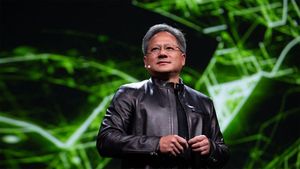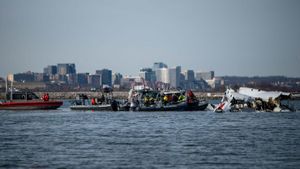UK Prime Minister Sir Keir Starmer has firmly stated the government’s stance on its relationship with the European Union, insisting it is "settled" amid growing calls for tighter trade ties. This assertion came as he prepares to meet with European Council leaders on Monday, aiming to re-establish the UK’s standing with the bloc after Brexit.
While Starmer has clearly indicated there will be no return to EU membership, he has not ruled out pursuing closer collaboration on various fronts including defense, energy, and trade. Speaking during the visit of German Chancellor Olaf Scholz at Chequers estate, Starmer articulated his desire for mutual benefits between the UK and the EU, saying, "I do want to see a closer relationship on defense and security, on energy, on trade and our economy, and this is what we’re working on."
Leaders from opposition parties, particularly the Liberal Democrats, are pressing for immediate negotiations to establish a customs union with the EU. Sir Ed Davey, the Lib Dem leader, urged Starmer to take this step, asserting it could invigorate the UK economy and improve its position against the risk of increasing tariffs from the US, particularly under President Donald Trump's administration.
“We need to fire the starting gun on creating this customs union,” Davey stated, emphasizing its importance for British businesses and revenues. He suggested the Prime Minister negotiate for the UK to join the Pan-Euro-Mediterranean (PEM) Convention, which allows for tariff-free movement of certain goods across Europe and referenced potential economic evaluations by the Office for Budget Responsibility to assess the impact of joining such trade agreements.
Despite these proposals, the Conservative Party remains resolute against any moves perceived as winding back the Brexit process. Home Secretary Yvette Cooper reiterated the Government's red lines, which include rejoining the customs union or single market. Conservative leaders are cautious, setting five tests for Starmer as conditions to avoid perceived backsliding on Brexit commitments. These tests demand no new payments to the EU, no compromises on asylum policies, retention of fishing rights, and no acceptance of EU laws infringing on UK sovereignty.
Kemi Badenoch, the Conservative leader, cautioned against what she sees as Labour’s attempts to "reopen the wounds of the past" relating to Brexit. She urged Starmer not to make concessions to the EU, reiteration commitments to NATO primacy concerning European security as part of her five tests, highlighting the expectation of maintaining strict adherence to the outcomes of the Brexit referendum.
It’s clear both sides of the political spectrum aim to position themselves favorably amid changing global trade dynamics, including the pressures from the US. Starmer remains under scrutiny not just from the opposition but from within his own party as well, as they seek to shape the post-Brexit economic future of the UK.
Starmer’s meetings with European leaders will likely be pivotal, setting the tone for how the UK intends to navigate its post-Brexit reality. The questions looming large are whether negotiations for closer trade ties with the EU will commence, and whether this will truly bolster Britain against external pressures, particularly from American trade policies.
Looking forward, the actions and decisions stemming from Starmer’s interactions with European leaders will be closely monitored by both Conservative and Liberal Democrat representatives as they vie for their respective narratives on Brexit and Britain’s future trade relationships.



